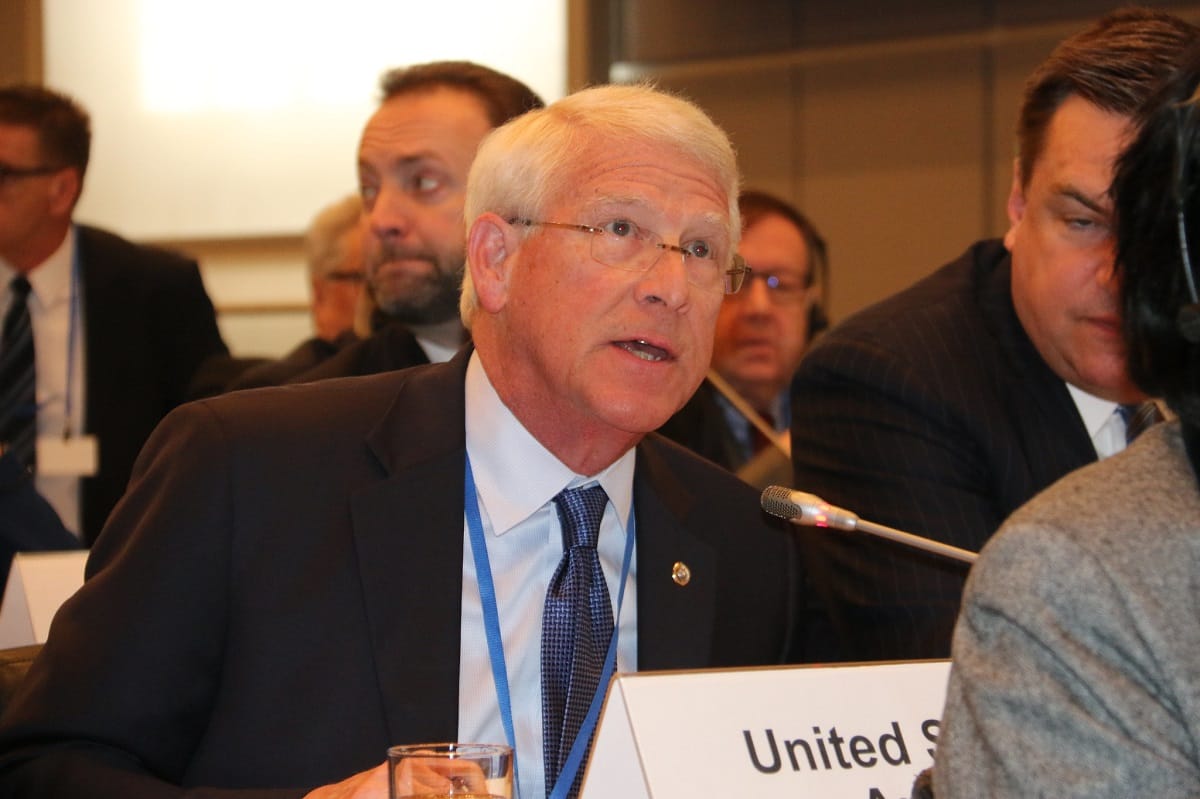Broadband DATA Act Clears Senate Committee and Dish Network Purchases $5 Billion Wireless Assets
The Senate Commerce Committee unanimously passed the Broadband Deployment Accuracy and Technological Availability Act on Wednesday, Broadcasting and Cable reports. The bill was introduced in June by Sens. Roger Wicker, R-Miss., Gary Peters, D-Mich., John Thune, R-S.D. and Amy Klobuchar, D-Minn. The

The Senate Commerce Committee unanimously passed the Broadband Deployment Accuracy and Technological Availability Act on Wednesday, Broadcasting and Cable reports. The bill was introduced in June by Sens. Roger Wicker, R-Miss., Gary Peters, D-Mich., John Thune, R-S.D. and Amy Klobuchar, D-Minn.
The goal of the Broadband DATA act is to accurately determine where broadband is and where it isn’t. It requires the Federal Communications Commission to collect granular service availability data from broadband providers and asks the agency to consider whether to collect verified coverage data from state, local, and tribal governments, as well as from other entities.
“Nearly four months after launching our mapping pilot program, the Senate Commerce Committee passed a plan mandating the adoption of the new USTelecom methodology to locate broadband serviceable locations,” said USTelecom president Jonathan Spalter in a statement about the bill.
“Senators on both sides of the aisle know that fixing our maps goes hand in hand with ensuring federal resources reach communities in their states without access to broadband as quickly and efficiently as possible. This is a big win for the cause of rural broadband and for good public policy,” he said.
Dish Network agrees to purchase $5 billion in T-Mobile/Sprint Wireless Assets
Bloomberg reported that Dish Network Corp. has agreed to pay $5 billion for wireless assets in a deal with T-Mobile US Inc. and Sprint Corp., setting the stage for the Justice Department to approve the $26.5 billion merger of the mobile-phone carriers.
According to people close to the merger who asked not to be identified, Dish will pay about $1.5 billion for prepaid mobile businesses and roughly $3.5 billion for spectrum. Dish can’t sell the assets or hand over control of the agreement to a third party for three years.
As part of the agreement, the satellite-TV company gets a seven-year wholesale agreement allowing it to sell T-Mobile wireless service under the Dish brand. The package also includes a three-year service agreement from T-Mobile to provide operational support as prepaid customers shift to Dish.
The Justice Department is expected to sign off on the deal as soon as Thursday. T-Mobile and Sprint, as well as their overseas parent companies, have spent more than a year fighting to get their merger approved. Makan Delrahim, antitrust chief of the Justice Department, has pushed for an agreement that would be a win for consumers and compensate for the fact that T-Mobile’s merger with Sprint would reduce the number of major players in the wireless industry to three from four.
Dish’s role would satisfy the government’s longstanding demand that four national mobile-service companies remain in the market.
Stopping Bad Robocalls Act passes House 429-3
Multichannel reported that the House has voted to pass the Stopping Bad Robocalls Act, H.R. 3375, on a 429-3 vote on Wednesday. Given the bipartisan support for cracking down on nuisance calls, the bill will likely pass the Senate and receive President Trump’s signature.
Among many things, the bill boosts the Federal Communication Commission’s fine for illegal robocalls from $1,500 per violation to $10,000 per violation. It also allows for consumers to know which calls are being blocked and increases information sharing between phone companies and the FCC to better trace unwanted robocalls to their source.
The FCC has recently clarified that carriers can block robocalls by default and incentivizes them to add the feature at no extra charge.
Energy and Commerce Committee Chairman Frank Pallone, D-N.J., said the legislation is a “strong and comprehensive bill that puts consumers first” and “take[s] tough and meaningful steps to protect consumers from these annoying and illegal robocalls.”
“We applaud House passage of the Stopping Bad Robocalls Act and look forward to the continuing work of Congress, the FCC, and industry to provide consumers with needed relief from these annoying calls,” said NCTA-The Internet & Television Association in a statement following passage.
(Photo of Senate Commerce Committee Chairman Roger Wicker, R-Miss., from February 2019 used with permission.)









Member discussion